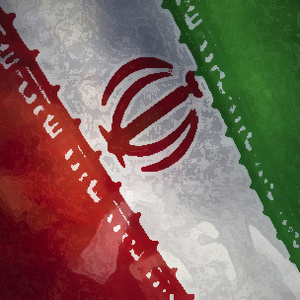The Week in Iran

The Iranian press was haunted with the news of Purposeful Subsidies the entire week. On Saturday night, in a televised interview Iranian President Mahmoud Ahmadinejad announced the launch of the Purposeful Subsidies plan. The plan will finally wean the Iranian economy off of subsidies that have infested the Iranian economy for decades. This “economic surgery” (as once described by Ahmadinejad a few years ago) was also the desire of his predecessors Akbar Hashemi Rafsanjani –who tried to implement it under the title “economic moderation”- and Mohammad Khatami –who had planned for a step-by-step removal of fuel subsidies. Their efforts were, however, thwarted by conservative parliaments in their days in office. Mahmoud Ahmadinejad faced much less opposition, however, as everyone had come around to the belief that subsidies will no longer serve the Iranian economy any good. Each Iranian citizen will receive a monthly ration of 44.5 thousand Tomans (approx. 44 USD) in compensation for the removed subsidies. Despite earlier predictions, no major protests were raised by ordinary citizens, though one must wait for the long-term impact of the plan.
A week after the controversial dismissal of Foreign Minister Manouchehr Mottaki, which occurred in an embarrassing way for the foreign minister while he was conveying Ahmadinejad’s message to the president of Senegal, another change in the cabinet sparked heated debates. Mehrdad Bazrpash, once a close companion of Ahmadinejad, was removed from his post as Vice President for Youth Affairs. MuchlLike Mottaki saga, rumor has it that Bazrpash’s arguments with Esfandiar Rahim Mashaei, head of the president’s office, had been the cause of his sacking. His would-be successor, Farahnaz Torkestani, also had her own story as she initially refused to accept the position saying that her poor health condition prevented her from serving in office. Confusion occurred when the official news agency (IRNA) denied her refusal, while the influential Fars New Agency published an audio file of its interview with Torkestani in which she confirmed her unwillingness to accept the post.
The Judiciary and the government are still struggling with each other. In a press conference, Speaker of the Judiciary Gholam-Hossein Mohseni Ezhe’i –the former Minister of Intelligence dismissed by Ahmadinejad in the final days of his first term- said that the case of Vice President Mohammad-Reza Rahimi, accused of financial corruption, is still open. In response, Rahimi said that he will attend a press conference to clarify the rumors of corruption. He later changed his decision, though adding that he will stay in his position as long as Ahmadinejad is the president.
The end of the week belonged to news about the seizure of Abdolraouf Rigi, brother of Abdolmalek Rigi, the executed leader of pan-Baluch group Jundullah, which had carried out several suicide attacks in the southeastern province of Sistan-va-Baluchestan. Iran had already given Pakistan an ultimatum following the Tasu’a day suicide attack that led to the death of 40 mourners in Chabahar city in south of the province. After a cycle of denial and admission of the news, it was announced that Abdolraouf, said to be the new leader of Jundullah, along with 8 other members of the group, have been arrested by Pakistan and will be handed over to Iran.

